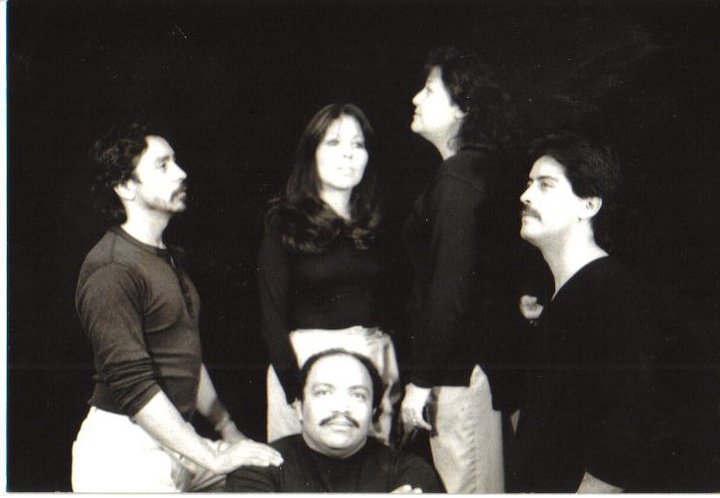
1982-1986
The Post Movement Early Reaganismo Funk
By Lisa Ramos
The period of the late seventies that continued into the early eighties became known as the “funk” by the company. Chicanos were becoming Hispanics, the country was moving rapidly toward the right and the left was increasingly taking us for granted. Opinions varied over what direction Su Teatro should pursue. Although the company continued to support and perform for political rallies and events, it began to realize that its survival was connected to developing culturally specific art, rather than issue oriented skits. New parameters were laid down as to when we would perform and how much time we were given for preparation. The company let it be known that they would be in workshop and only available for performances that took place around that schedule. The first production to come out of the group’s new focus was a rewritten script of El Corrido de Auraria. The play told the story of, in a musical format, of the depopulation of a traditionally Chicano/Mejicano neighborhood in Denver, in order to build the Auraria campuses. Tony García produced the play while on leave from Su Teatro, though its successful six week run at The Slightly Off Center Theater in Denver served to kindle a public interest in the theater company, and instill a greater sense of accomplishment in its members. El Corrido ran for six weeks in April 1982, and was revived in September, 1982 to run at the Denver Center for Performing Arts. Despite the success of El Corrido, the funk continued until the production of The 9th Street Vato Loco Band in May 1984. After a successful four-week run in Denver, the played toured throughout California, New Mexico, and Arizona. Su Teatro then entered a period of high productivity. In 1985, the company produced its first Summer Showcase featuring two original one act plays and produced out of the summer workshops Serafin: Cantos y Lagrimas and And the Worm Turns. A major turning point for the company came in 1986. Su Teatro was invited to audition for Joseph Papp’s prestigious Latino Theater Festival, to be held in New York City. Members presented scenes from Intro. to Chicano History: 10, then still a work in progress. The audition was a success, and the members scrambled to complete the play, which covered 500 years of Chicano history. The show ran a few nights in Denver a s a warm up to production at the Festival in August. Intro. to Chicano History: 101 was well-received in New York City, and returned to Denver for a seven week run in November 1986. The early eighties truly proved to be the test for Su Teatro, as it was for the rest of the country. During this period, the company struggled to define itself. Fortunately, the core members remained dedicated to maintaining a company of high artistic quality as well as uncompromising commitment to the Chicano community. Su Teatro would approach the late eighties with a renewed sense of energy and purpose.

